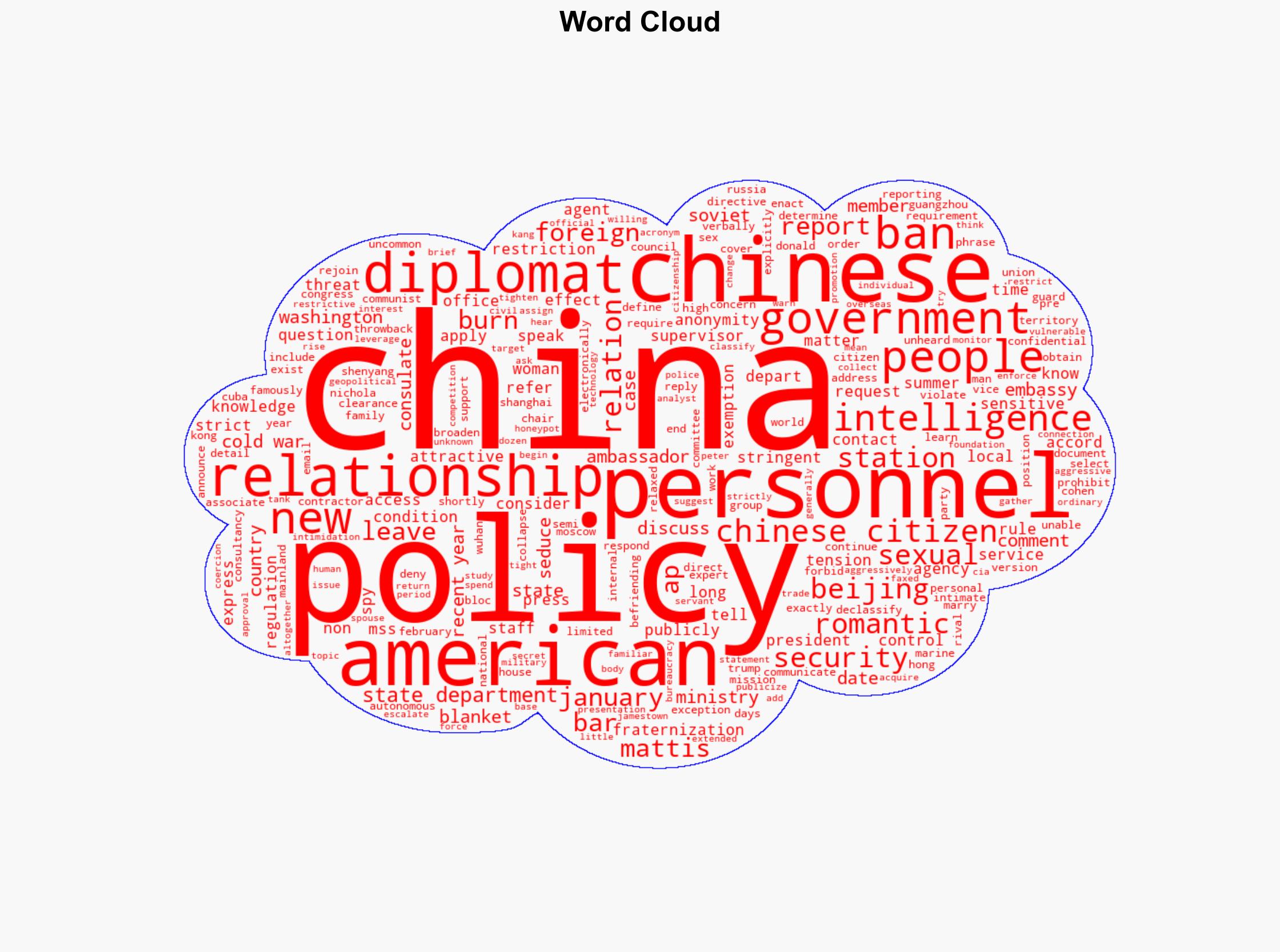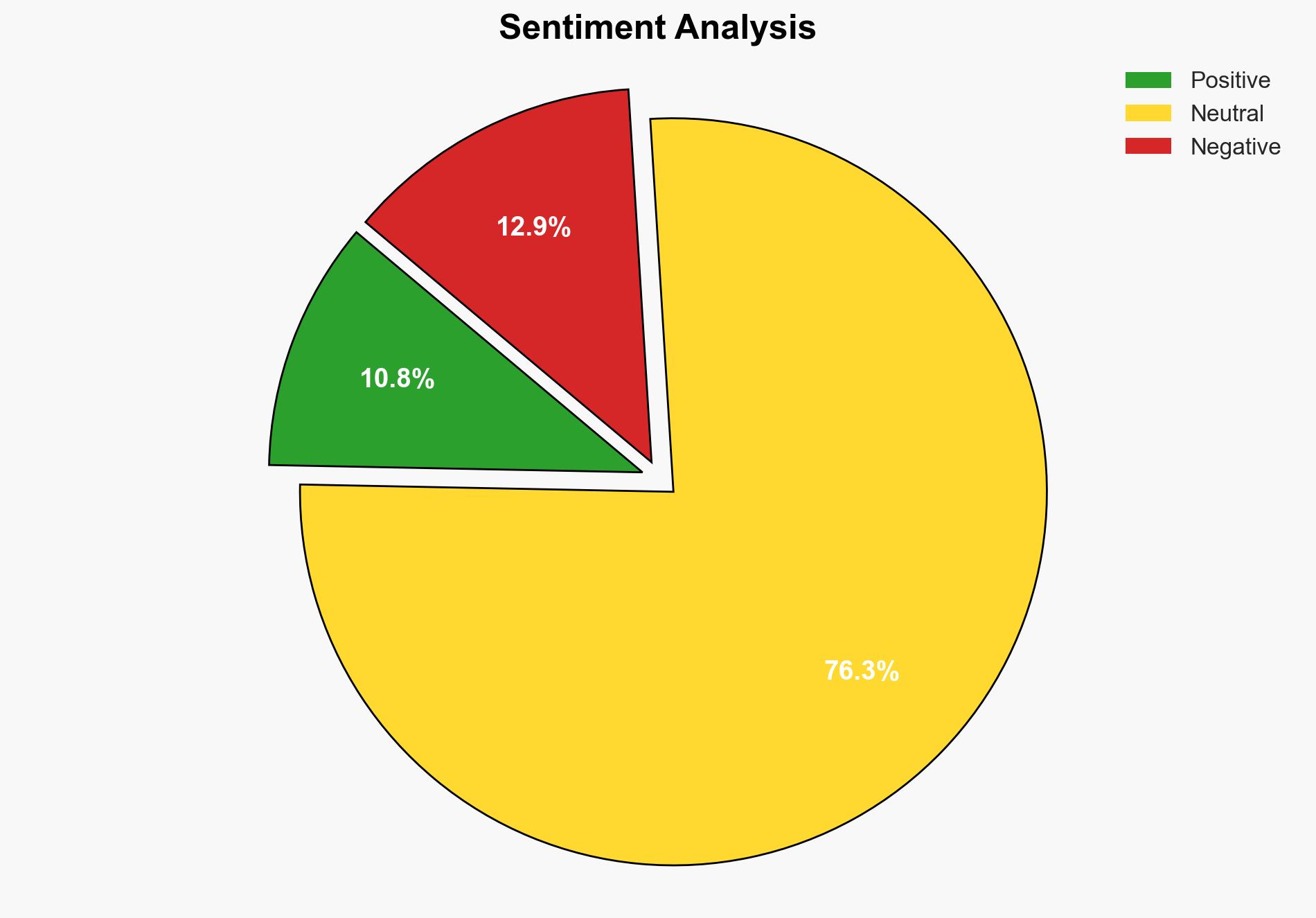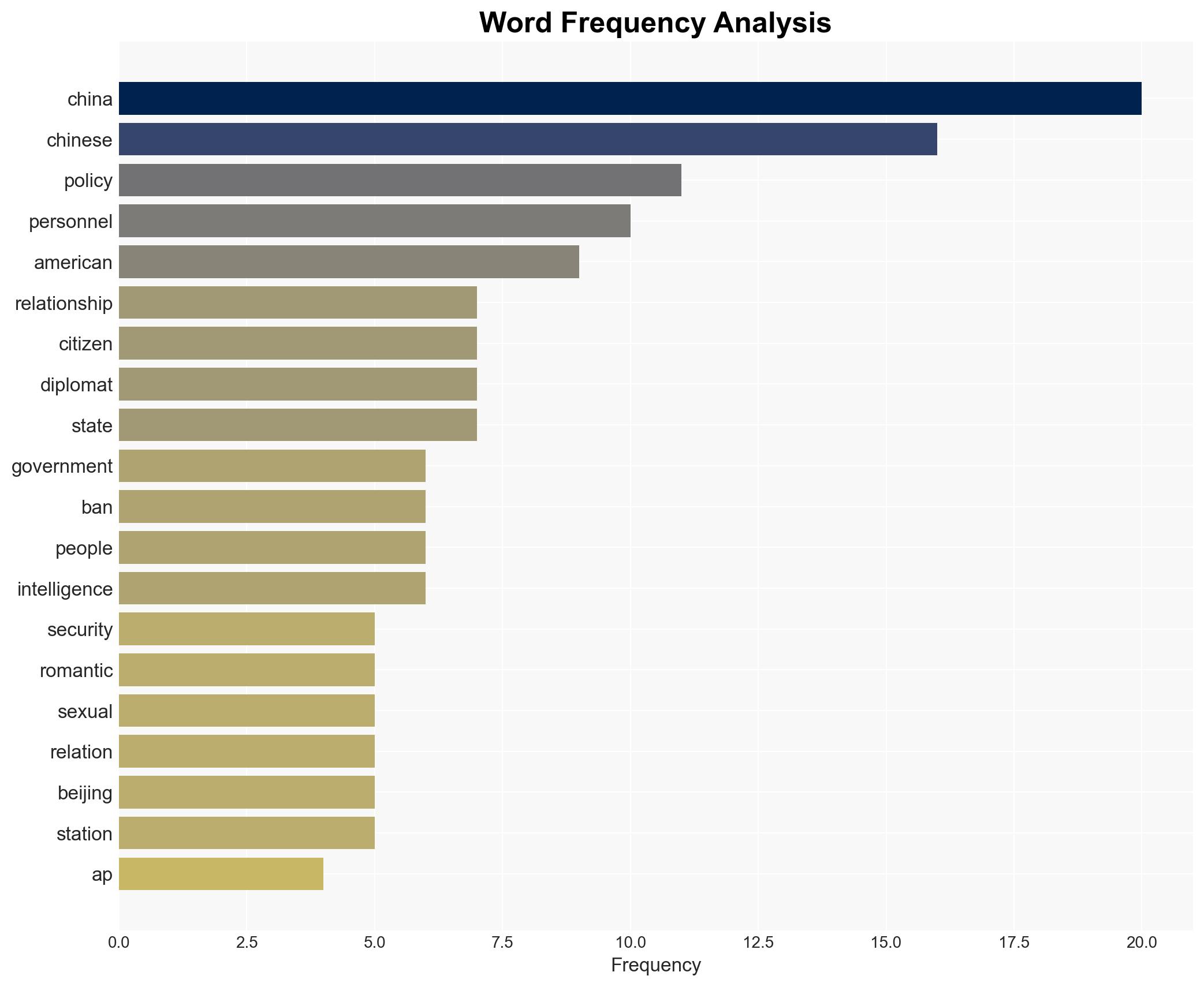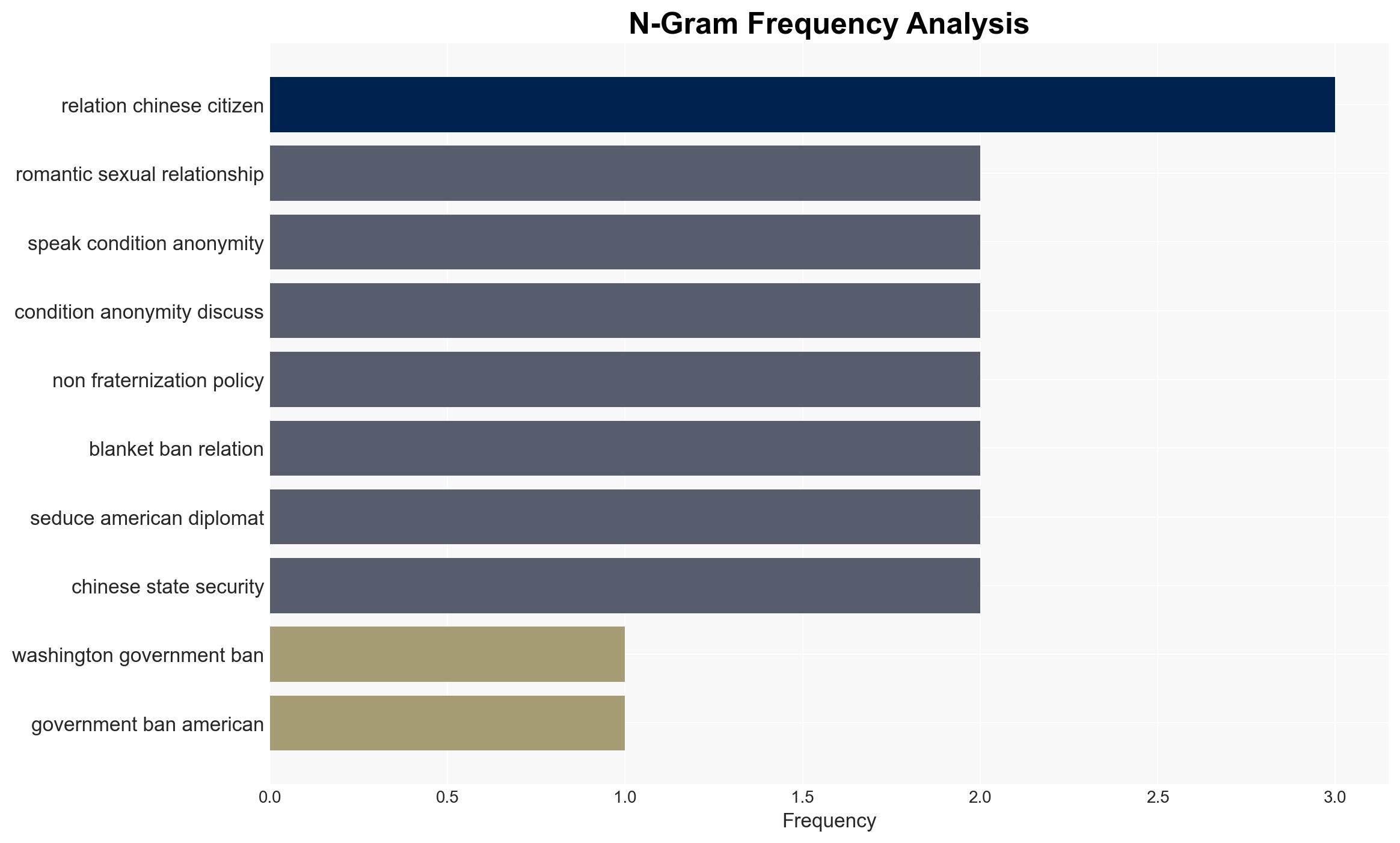US Bans Government Personnel in China From Romantic or Sexual Relationships With Chinese Citizens – Time
Published on: 2025-04-03
Intelligence Report: US Bans Government Personnel in China From Romantic or Sexual Relationships With Chinese Citizens – Time
1. BLUF (Bottom Line Up Front)
The US government has implemented a policy prohibiting American personnel stationed in China from engaging in romantic or sexual relationships with Chinese citizens. This directive, effective from January, aims to mitigate security risks associated with potential intelligence threats. The policy applies to personnel across various diplomatic missions in China, including embassies and consulates. The directive reflects heightened tensions between Washington and Beijing, driven by geopolitical, trade, and technological competition.
2. Detailed Analysis
The following structured analytic techniques have been applied for this analysis:
General Analysis
The policy is a strategic response to perceived intelligence threats posed by Chinese state security operations. Historical context reveals similar measures during the Cold War, where American personnel were restricted from engaging with locals in rival states. The directive is part of broader efforts to safeguard sensitive information and prevent potential espionage activities. The policy’s implementation coincides with increased scrutiny of Chinese intelligence tactics, including the use of “honeypot” strategies to compromise foreign officials.
3. Implications and Strategic Risks
The policy introduces several strategic risks and implications:
- Potential diplomatic strain between the US and China, as the policy may be perceived as a lack of trust.
- Operational challenges for American personnel in China, affecting morale and personal freedoms.
- Increased scrutiny and monitoring of personnel relationships, potentially leading to privacy concerns.
- Escalation of tensions in the context of ongoing trade and technological disputes.
4. Recommendations and Outlook
Recommendations:
- Enhance training for personnel on security risks and cultural sensitivities in China.
- Implement clear guidelines and support systems to assist personnel in complying with the new policy.
- Engage in diplomatic dialogue with Chinese counterparts to manage potential fallout and maintain bilateral relations.
Outlook:
Best-case scenario: The policy effectively mitigates security risks without significant diplomatic repercussions, leading to improved information security.
Worst-case scenario: The policy exacerbates tensions, leading to retaliatory measures by China and further straining US-China relations.
Most likely outcome: The policy is implemented with minor diplomatic friction, contributing to a cautious but stable bilateral engagement.
5. Key Individuals and Entities
The report mentions significant individuals such as Nicholas Burns and Peter Mattis. These individuals are relevant to the context of the policy but are not detailed with roles or affiliations.





